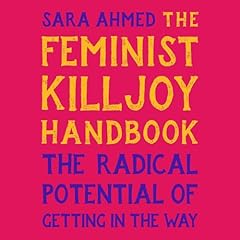
Heaven Is a Place on Earth
Searching for an American Utopia
No se pudo agregar al carrito
Add to Cart failed.
Error al Agregar a Lista de Deseos.
Error al eliminar de la lista de deseos.
Error al añadir a tu biblioteca
Error al seguir el podcast
Error al dejar de seguir el podcast
 Exclusivo para miembros Prime: ¿Nuevo en Audible? Obtén 2 audiolibros gratis con tu prueba.
Exclusivo para miembros Prime: ¿Nuevo en Audible? Obtén 2 audiolibros gratis con tu prueba.Compra ahora por $22.22
-
Narrado por:
-
Adrian Shirk
-
De:
-
Adrian Shirk
An exploration of American ideas of utopia through the lens of one millennial's quest to live a more communal life under late-stage capitalism
Told in a series of essays that balance memoir with fieldwork, Heaven Is a Place on Earth is an idiosyncratic study of American utopian experiments—from the Shakers to the radical faerie communes of Short Mountain to the Bronx rebuilding movement—through the lens of one woman’s quest to create a more communal life in a time of unending economic and social precarity.
When Adrian Shirk’s father-in-law has a stroke and loses his ability to speak and walk, she and her husband—both adjuncts in their mid-20s—become his primary caretakers. The stress of these new responsibilities, coupled with navigating America’s broken health-care system and ordinary 21st century financial insecurity, propels Shirk into an odyssey through the history and present of American utopian experiments in the hope that they might offer a way forward.
Along the way, Shirk seeks solace in her own community of friends, artists, and theologians. They try to imagine a different kind of life, examining what might be replicable within the histories of utopia-making, and what might be doomed. Rather than “no place,” Shirk reframes utopia as something that, according to the laws of capital and conquest, shouldn’t be able to exist—but does anyway, if only for a moment.
Los oyentes también disfrutaron:




















Comes from a privileged, white, able bodied perspective,and has some holes in perspective. The author does try to acknowledge some of these privileges. Overall it’s worth the read.
Loved the historical review, personal narrative a bit privileged
Se ha producido un error. Vuelve a intentarlo dentro de unos minutos.
I’ll start by saying, I am not a writer and my taste in books leans toward historic narratives. I hate returning books and finish anything I start out of compulsion. I just couldn’t finish this.
The author spends so much time complaining about her life and imagining what could have been. She reflects on times when she was just an entitled white kid that didn’t understand the broader implications of her writing. She hasn’t realized that she is still that kid doing the same thing. Now she has just had some hard times and goes on a self indulgent exercise of imagining the simple life. What’s worse, even in her imaginary life joining a community, she can’t separate from her ego. It is all “if I was a member of this society I would do x,y,z as a role even though this society doesn’t have prescribed roles.
Basically, if you have met someone in college that went abroad and now all they can do is talk about how well they fit in with the culture they visited then you have read this book. Insufferable.
The other reviews said this was part history part memoir. This is fully memoir with the utopia history just used as devise for the author to tell us more about herself. She says it in the first chapter. She wanted to write a history and failed. So, she wrote a memoir.
Memoir of a book that was never written
Se ha producido un error. Vuelve a intentarlo dentro de unos minutos.


